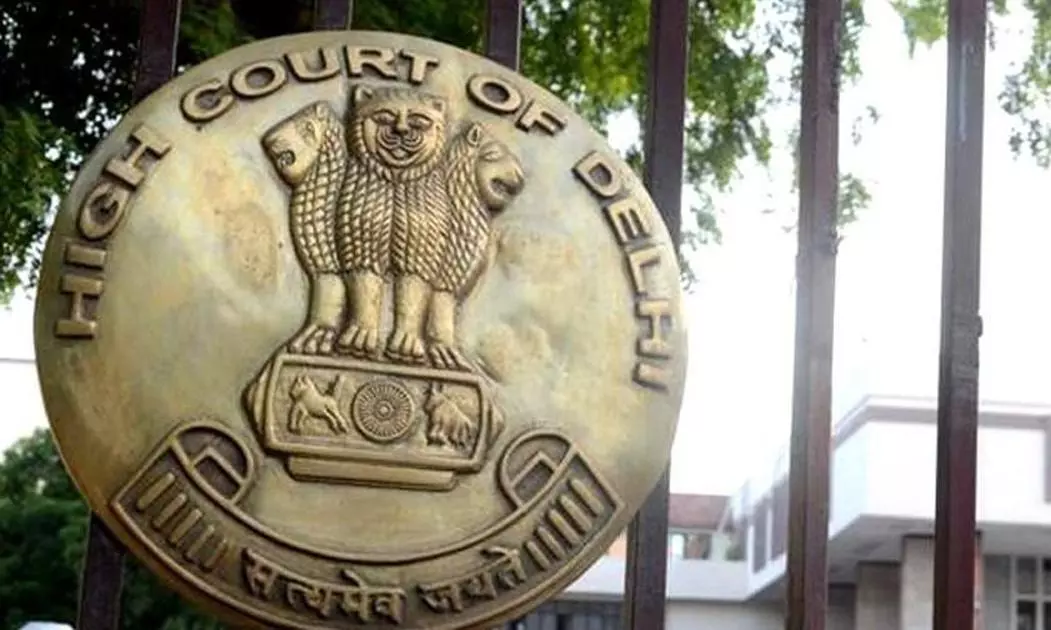Delhi Could Become ‘Barren Desert’ Says HC

New Delhi: Taking note of the recent temperature spike to 52.3 degrees Celsius in the city, the Delhi High Court has observed that the national capital could become a barren desert if the present generation continues an apathetic view of deforestation. Delhi's Mungeshpur area on Wednesday logged a maximum temperature of 52.3 degrees Celsius, the highest ever recorded in the city.
"Judicial notice is taken of the fact that as recently as on May 30, the official temperature recorded in Delhi was 52.3 degrees Celsius. It is not far to see the day when this city may be only a barren desert, in case the present generation continues an apathetic view on deforestation," Justice Tushar Rao Gedela said.
The high court, which had earlier appointed its former judge Najmi Waziri as the chairperson of an internal departmental committee of city officials dealing with the protection of forests in Delhi, was informed that Waziri was unable to perform his duties due to a lack of infrastructure.
"This court cannot countenance a situation where the chairperson (Justice Waziri) is unable to discharge the responsibilities on account of lack of an office space or a secretarial and support staff or even transportation.
"However, rather than directing the department (of Forest and Wildlife) to provide staff in a diverted capacity, it is considered appropriate to direct the department to pursue the matter in all earnest and in no case shall the approval be delayed beyond June 15," the court said.
As per a report of the chairperson of the committee filed through advocate R Arunadhri Iyer, the Delhi government was informed of the requirement of infrastructure, along with secretarial support staff and transportation which would be required for the chairperson to efficiently discharge his responsibilities.
The chief conservator of forests submitted that the approval for the requirements has already been put up to the minister concerned and thereafter, it is to be placed before the Cabinet and then to the lieutenant governor for final approval.
The amicus curiae appointed in the case submitted that once a judicial order was passed, the infrastructure and other facilities required for efficient administration and discharge of responsibilities by the chairperson of the committee have to be complied with at the earliest.
The high court said after the approval was granted by the competent authority, the infrastructure development should be completed within the next 15 days.
"Since the next date of hearing is already fixed for July 29, it is expected that all things and requirements of the chairperson and the committee shall be put in place and in full working condition, prior thereto," the court directed.
The court also accepted the suggestion of another amicus curiae to rename the committee and said that now, it should be referred to as the 'Special Empowered Committee' instead of the 'Internal Departmental Committee'.
"It is made clear once again that all the concerned officers of the concerned departments are directed to attend all the meetings as and when called for, except in special circumstances in which they are unable to attend so. However, the chairperson be given prior intimation as to their inability to attend the particular meeting," the court said.
The court said the strict measures are only to ensure that the committee completes its responsibilities and references made to it, "keeping in view the worsening situation of climatic conditions in Delhi".
On December 21 last year, the high court directed the constitution of the committee consisting of the chief conservator of forests, the conservator of forests, the deputy conservator of forests (protecting and monitoring) and the DCF concerned for the preservation of deemed forests.
It had said that the committee would ensure that concrete steps are taken for the protection, preservation, reclamation and enhancement of forests, both protected and deemed.
It had directed the Delhi government to provide suitable and adequate office accommodation for the committee and to bear all the expenses of its functioning, including suitable remuneration.

